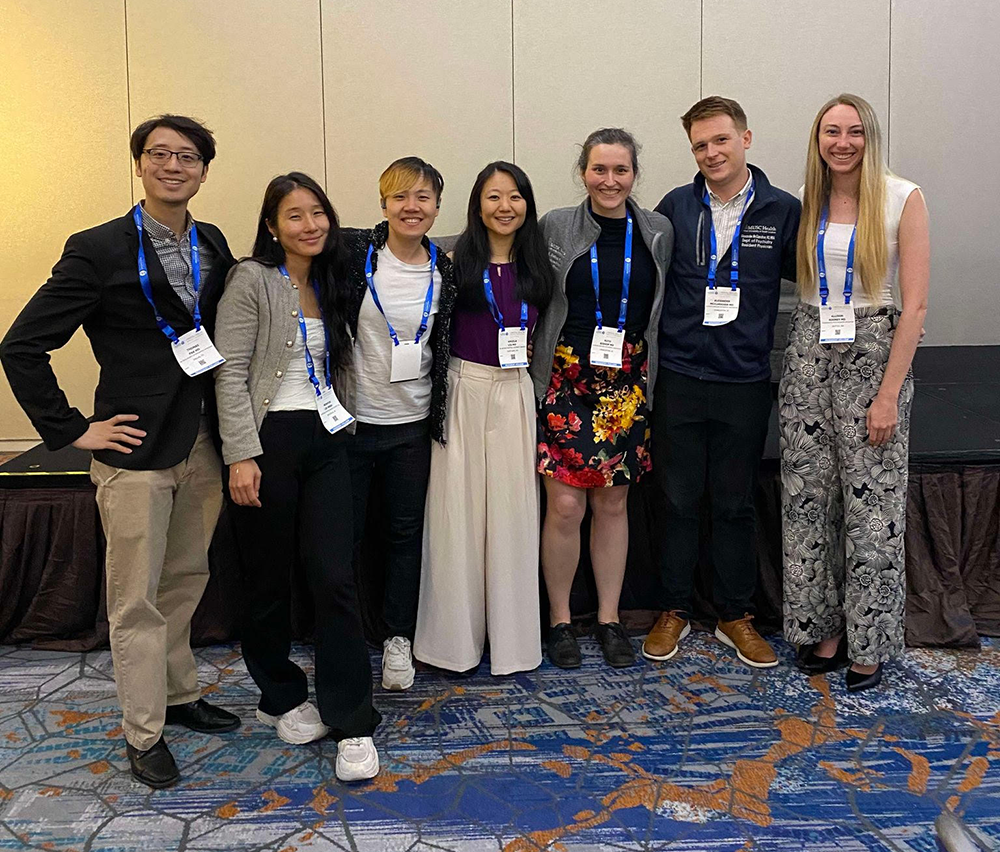“I’m very passionate about creating collaborative spaces and peer mentorship and collective action,” said Angela Liu, M.D., Chair of the APA Foundation’s public psychiatry fellowship. “What is so powerful about the APA Foundation fellowships is that you’re bringing together all these doers, and it’s the perfect environment for cultivating the atmosphere of learning from each other. A lot of leaders who end up in the fellowships space are there because they want to create systems-level change, and advocacy is the conduit to try to make that long-lasting, systems-level impact.”
In September of 2024, the public psychiatry fellows’ group chat pinged with nonstop updates as they brainstormed a brand-new element of the fellowships program. Their innovation: a workshop series that would open the door to working with APA fellows in other fellowships through a group of projects advocating for the mental health of marginalized communities. “The opportunity for inter-fellowship collaboration was missing [from the fellowships program],” said Dr. Liu. After getting the green light from APA Foundation staff, the fellows officially kicked off the self-directed workshop series with the first of many virtual meetings.
One project that emerged from the series: An initiative designed to raise awareness of the high suicide rate among Asian American and Pacific Islander (AAPI) youth and catalyze action to reduce it. From 1991-2021, the suicide rate among young AAPI adults increased by 72% for boys and by 125% for girls, making it the leading cause of death for this group. Dr. Poojajeet Khaira, an APAF Leadership Fellow, has been working closely with APA members to call attention to high suicide rates in young AAPI populations.
Advocacy is a group effort. So far, the AAPI youth suicide prevention taskforce has connected with the APA’s Minority Health Council, Asian American Caucus, Children’s Council, and Schools & Justice program team to help amplify their work products. They have also established a relationship with the Asian Pacific American Medical Student Association (APAMSA). Individuals from each of these groups have joined the fellows in their work within the APA and have lent resources to a workgroup that will form toolkits, educational deliverables, and other advocacy products.
“In all of the projects I’ve been involved with during my fellowship, it’s the passion from other fellows that has kept them going and kept me invested,” said Dr. Khaira. “That’s why this workshop series is so cool; we all have so much passion, but through a forum like this, we meet people passionate about the same topics as us. That has been the biggest asset of the fellowships program for me; being able to meet people who are interested in the same things as me. You can’t always count on that in your residency.”
Other initiatives with similar objectives that have been created through the workshop series are focused on carceral psychiatry, countertransference, immigrant mental health, gun policy reform, and mental health for people of faith. To learn more about the Fellowships program and the professional development opportunities it makes possible, visit apaf.org/fellowships.
The final gathering in the 2024-2025 fellow advocacy workshop series will take place at APA Annual Meeting in Los Angeles on May 17 at 2:00 p.m.

